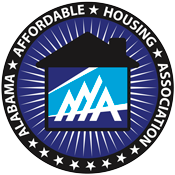Community Developments: The White House Released a Proposal to Overhaul the Federal Government
Jul 9, 2018 | articles
June 22, 2018
- The White House has unveiled a new proposal to overhaul the federal government, which includes several provisions that would impact affordable housing and community development programs. These proposals include: moving the U.S. Department of Agriculture’s rural housing loan guarantee and rental assistance programs to HUD; consolidating Community Development Block Grants into a new “Bureau of Economic Growth” within the Department of Commerce; and establishing a permanent Council on Public Assistance, which would be composed of HUD and other agencies that administer public benefit programs and would be able to set statutory cross-program policies like uniform work requirements. The proposal also includes plans to reform the federal housing finance system, including ending the conservatorship of Fannie Mae and Freddie Mac (the GSEs), providing an explicit federal backstop and focusing the GSEs on secondary market liquidity for mortgage loans to qualified borrowers. (POLITICO, June 2018)
- An article in Curbed Detroit looks at the Northwest Neighborhood Revitalization Strategic Framework, a new effort in the city of Detroit that was developed by Sinai Grace Guild Community Development Corporation (SGGCDC), with support from Enterprise Community Partners, DMC Sinai-Grace Hospital and other stakeholders. SGGCDC partnered with Enterprise to engage the neighborhood and develop a revitalization framework that is based on public input. Melinda Clemons, senior director for Enterprise Community Partners’ Detroit market, notes that the community engagement process started with the strong assets in the neighborhood, including large anchor institutions, to develop ways to create economic mobility for residents. The final framework was informed by four community design workshops that were coordinated to understand neighborhood assets and opportunities and to discuss project proposals, as well more than 25 one-on-one and small group conversations with area residents and leaders and roughly two dozen community meetings and tabling opportunities to solicit input. (Curbed Detroit, June 21)
- Enterprise Green Communities has announced its 2018 Green Grant awards to a select group of affordable housing organizations that have demonstrated their commitment to implementing critical strategies from the Enterprise Green Communities Criteria to further their development projects and organizational practices in sustainable and healthy building. Through the 2018 Predevelopment Grant Program, seven organizations were awarded $5,000 to embark on an integrative design process and engage with residents to incorporate sustainable design into their affordable housing projects from the beginning. In addition, six organizations have been invited to participate in Enterprise Green Communities’ first Excellence in Active Design program, receiving $15,000 to employ innovative creative design strategies that encourage physical activity within their projects and demonstrate excellence in active design to the affordable housing industry. Learn more about these grants in Enterprise’s blog post.
- Mayor Rahm Emanuel of Chicago and the Community Investment Corporation (CIC) have announced the creation of the Chicago Opportunity Investment Fund, a new initiative designed to create and preserve affordable rental housing across the city. The $30 million fund will provide low-cost financing to developers purchasing existing multifamily buildings, requiring them to keep at least 20 percent of those units affordable for the next fifteen years. The fund will focus investments in neighborhoods where the cost of acquiring and preserving affordable housing is often prohibitive, with the goal of encouraging the creation and preservation of affordable rental units. (City of Chicago, June 21)
In Case You Missed It
- Yesterday the U.S. Senate voted down “The Spending Cuts to Expired and Unnecessary Programs Act,” a bill that would have rescinded $15 billion in previously approved funding. The bill, which passed the House on June 7, includes cuts of $40 million in funds that support residents of public housing, $40 million from rural rental assistance and $141 million from the Capital Magnet Fund. According to the National Low Income Housing Coalition, the recession bill specifically targeted funding for: the Resident Opportunity and Self-Sufficiency (ROSS) program, leading to cuts that would have damaged efforts to hire service coordinators to help public housing residents access resources in their communities; the rural rental assistance program, which would have prevented USDA from fully renewing all existing contracts; and the Capital Magnet Fund, leading to reduced private-sector investments in affordable housing and community development. (NLIHC, June 20)
